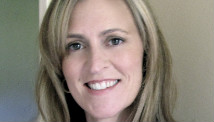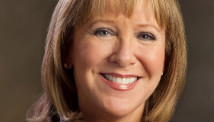Climate change didn’t even match Andy Warhol’s famous-for-15-minutes standard this week at a gathering devoted to reviving conservative leadership on the environment. It got five minutes at the 1 hour, 40 minute mark of a two-hour program, and what was said about it amounted to “We will deal with that some other time, maybe.”
To be fair, the Conservation Leadership Council is an admirable if risk-averse effort by concerned Republicans to reclaim a mantle that has faded since Teddy Roosevelt went on a conservationist tear creating national forests, parks, and monuments, and Richard Nixon decided (to the retroactive dismay of his party) that the country needed an Environmental Protection Agency. The council has its own mission: identifying ways to solve environmental problems that don’t require embracing big government.
“Conservatives who don’t like big government often don’t like environmental proposals because they are all about big government. We’re looking for some ways of getting out of that box,” said former Interior Secretary Gale Norton. “It’s about creating proposals that can find broad support.”
By definition, that excludes climate change.
It’s not that there isn’t a national consensus on the topic, particularly since superstorm Sandy. Several recent polls suggest three-quarters of the country believes that the climate has been getting warmer and that the federal government should take at least some steps to combat global warming—even if that means more regulation of harmful emissions and higher taxes or electricity rates.
But there is no consensus within the GOP. Nowhere were the rifts more pronounced than in the party’s presidential nomination race, which produced this classic tweet from then-candidate Jon Huntsman: “To be clear. I believe in evolution and trust scientists on global warming. Call me crazy.”
The party’s hostility to climate science will be showcased anew this year in the Virginia governor’s race, the marquee political contest of 2013. Republicans appear set to nominate Attorney General Ken Cuccinelli, a conservative firebrand who tried to ruin a climate researcher at the University of Virginia.
There are some Republicans who don’t shy from global warming, notably former Sen. John Warner of Virginia. But the conservation leadership group is focusing on far less inflammatory issues and aims to make its mark in cities and state capitals. Its first compilation of case studies highlights public-private management partnerships in state parks and the Blackfoot Watershed of eastern Montana; market and incentive approaches to preserving endangered species and restoring a Florida reef; and new sources of capital for making buildings more energy-efficient. “We can be a clearinghouse of good ideas,” said Ed Schafer, the former Agriculture secretary and North Dakota governor.
This is a wonky group, given to talk of carcass pickups and total maximum daily loads. There’s no question its adherents have sensible ideas—for instance, gathering hikers, bicyclists, mountain bikers, and horseback riders in a room to work out together how to manage a wilderness area they all want to use, or paying a farmer to make his irrigation system more efficient, thereby freeing up water for the nearby city that badly needs it while (it’s hoped) bypassing conflict and litigation.
Norton and former Deputy Interior Secretary Lynn Scarlett, the moderator of the session, said that policies to cope with water shortages and make buildings more energy-efficient are related to climate change. And that is as far as they will take it. “That’s not really something that our council has addressed directly. It may be something that we look at down the road,” Norton said.
What the Conservation Leadership Council is doing now is a start, but it won’t do much to improve the national GOP brand or transform the national climate debate. By coincidence, the group held its inaugural Washington event on the same day the federal government announced that 2012 was the warmest year on record for the contiguous United States. Talk about the elephant in the room.
Weather News Headlines – Yahoo! News
Title Post: Can You Lead on the Environment if You Bypass Climate Change?
Url Post: http://www.news.fluser.com/can-you-lead-on-the-environment-if-you-bypass-climate-change/
Link To Post : Can You Lead on the Environment if You Bypass Climate Change?
Rating:
100%
based on 99998 ratings.
5 user reviews.
Author:
Thanks for visiting the blog, If any criticism and suggestions please leave a comment


